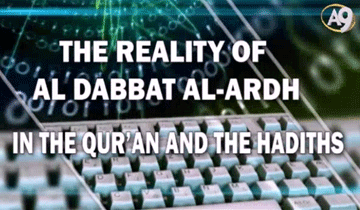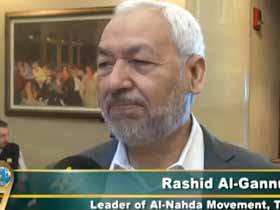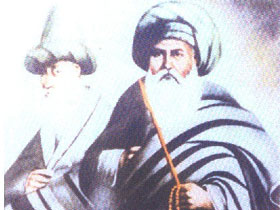Throughout the course of history, Allah has called people to the true path by means of His messengers He has sent.
Messengers preached the true faith to their peoples and called on them to believe in and serve Allah alone.
But only a handful of people heeded and obeyed the messengers.
The majority persisted in their unbelief.
Not only did these people reject the messengers’ calls, they also sought to obstruct and harm them.
Messengers were frequently subjected to false accusations, such as “lying, sorcery or madness,” by their peoples.
They were even threatened with death by leading members of their peoples.
But each prophet only asked that his people should obey Allah.
They sought no money or any other worldly gain from them in return, simply calling the society to which they were sent to the true faith.
Like all the other prophets, the Prophet Jethro (pbuh) was sent to the peoples of Madyan (Midian) and al-Ayka in order to call on them to believe in Allah and live virtuously.
Yet the people of Madyan planned to stone to death Prophet Jethro (pbuh), whose only aim was to call them to the true path, while the people of al-Ayka foolishly mocked him.
Both societies that rejected the prophet met with Allah’s wrath and were destroyed.
All their wealth and possessions which they had accumulated were destroyed, and they themselves were erased from the pages of history.
In this film you will come to know the peoples of Madyan and al-Ayka and witness how they were destroyed because of their rebellion and denial.
THE CHARACTERISTICS OF THE PEOPLE OF MADYAN
When one looks at all the peoples who lived and were destroyed in the world throughout history, one can see that these peoples had many things in common, such as that despite being warned they had no fear of Allah, that they behaved in an unpleasant and immoral manner; furthermore, they adopted life styles based on oppression and injustice and they thought only about worldly concerns.
One such society that was destroyed because of this behavior was the people of Madyan.
Madyan was a region in the eastern part of Egypt, behind the Sinai Desert.
In today’s geography it corresponds to the southern tip of Jordan.
The city of Madyan was renowned for its rivers, gardens, date groves and the wealth of its people.
However, dishonesty in their business practices had become a habit among those people.
Almighty Allah sent the Prophet Jethro (pbuh) to call on them to believe and behave ethically.
The Prophet Jethro’s (pbuh) warnings to his people and the fate that befell that unbelieving society is set out in detail in the Qur’an.
Let us now examine the characteristics of the people of Madyan in greater detail.
They possessed an advanced civilization
Like many societies that have been destroyed over the course of history, the people of Madyan enjoyed a high level of civilization.
This feature of destroyed societies is emphasized in these words in the Qur’an:
Have they not traveled in the earth and seen the final fate of those before them? They were greater than them in strength and left far deeper traces on the earth, yet Allah seized them for their wrong actions and they had no one to protect them from Allah. (Surat al-Mu'min, 21)
The verse notes two characteristics of destroyed societies:
The first is their strength, and the second that they produced many superior works.
However, as the verse also reveals, their power and civilization did not save these unbelieving societies, and was of no benefit to them at all.
The city of Madyan had been given great wealth with its rivers and gardens.
The people lived in comfort, but they were not grateful for the blessings that Allah had given them.
When Allah’s command came, the people of Madyan and all they possessed were wiped from the face of the earth as if they had never existed:
As for those who denied Jethro, it was as if they had never lived there. It was the people who denied Jethro who were the lost.
So he turned away from them and said, ‘My people, I transmitted My Lord’s message to you and gave you good counsel. Why should I grieve for a disbelieving people?’ (Surat al-A’raf, 92-93)
They were unjust in business
The people of Madyan were also highly advanced in commerce.
But they crossed the boundary of ethics in their business life and engaged in fraud and cheating.
They made unjust earnings by defrauding people.
Allah sent the Prophet Jethro (pbuh) to call them to the true path and to be just and honest.
But those who had become rich through fraud did not listen to what the Prophet Jethro (pbuh) said about justice and honesty; they persisted in their cheating and unbelief.
The Prophet Jethro (pbuh) warned his people about their behavior many times.
Verses tell us how the Prophet Jethro (pbuh) advised his people to behave justly and how lawful earnings would be more auspicious for them:
My people! Give full measure and full weight with justice; do not diminish people's goods; and do not go about the earth, corrupting it.
What endures with Allah is better for you if you are believer. I am not set over you as your keeper.’ (Surah Hud, 85-86)
A person can acquire wealth by stooping to means that Allah has made unlawful.
But that person can never find true peace and happiness with what he acquires by unjust means.
More importantly, a painful punishment in the hereafter awaits someone who breaches the bounds set by Allah by not repenting of his sins and persisting in such behavior.
The Qur’an reveals how the Prophet Jethro (pbuh) warned his people, who refused to believe in him, of a terrible wrath that would come from Allah:
And to Madyan their brother Jethro. He said, ‘My people, worship Allah! You have no god apart from Him. Do not give short measure and short weight. I see you prospering and I fear for you the punishment of an all-encompassing Day. (Surah Hud, 84)
Earnings acquired by scrupulously adhering to the bounds set by Allah will always bring with them goodness and abundance, because the path that our Lord reveals in the Qur’an is the truest and best path.
For that reason, people who live in compliance with the moral values of the Qur’an and make money by adhering to the bounds set by Allah will be more than recompensed in this world and in the hereafter, and will attain peace and plenty.
Our Almighty Lord has promised that He will bestow great blessings in this world and in the hereafter on those who believe and avoid the things He has made unlawful:
What you give with usurious intent, aiming to get back a greater amount from people’s wealth, does not become greater with Allah. But anything you give as zakat, seeking the Face of Allah – all who do that will get back twice as much. (Surat ar-Rum, 39)
The answer to today’s economic problems, the way to achieve social peace and well-being, is for everyone to abide by the moral values of the Qur’an.
They were a society of unbelievers
All the societies that have ever been destroyed were largely made up of people who have refused to fear Allah, despite all the warnings, had adopted an immoral life style, violated the rights of others and ignored the hereafter for the sake of their interests in this world.
Like all the other prophets, the Prophet Jethro (pbuh) was sent to the people of Madyan to call on them to believe in Allah and behave morally.
But they persisted in not living by religious moral values and in the dishonest business practices they saw no harm in.
The Qur’an reveals how the people of Madyan threatened believers, who refused to engage in denial like them, and spread corruption.
The wise preaching of the Prophet Jethro (pbuh), who warned his people against rejecting Allah’s commandments, and also warned them about the Day of Reckoning, is quoted thus in the Qur’an:
And to Madyan We sent their brother Jethro, he said, ‘My people, worship Allah and look to the Last Day and do not act unjustly on earth, corrupting it.’ (Surat al-‘Ankabut, 36)
In addition, the Prophet Jethro (pbuh) also reminded his people, who refused to listen to him, of the fate that had befallen earlier societies as a result of their denial.
He reminded them how previous societies had experienced the wrath of Allah for opposing His messengers.
The Prophet Jethro (pbuh) warned his people against making the same mistake themselves:
My people! Do not let your breach with me provoke you into doing wrong so that the same thing happens to you as happened to the people of Noah and the people of Hud and the people of Saleh; and the people of Lot are not far distant from you.
Ask your Lord for forgiveness and then repent to Him. My Lord is Most Merciful, Most Loving.’ (Surah Hud, 89-90)
They failed to properly appreciate the might of Allah
Another striking feature of the people of Madyan is that they failed to properly appreciate the might of Allah.
Because of their foolishness they did not fear Allah, but they feared those people around the Prophet Jethro (pbuh) who seemed to be very powerful.
They said, ‘Jethro, We do not understand much of what you say and we see you are weak among us. Were it not for your clan, we would have stoned you. We do not hold you in high esteem!’ (Surah Hud, 91)
But the fact is that is all power belongs to our Almighty Lord Allah, and it is He alone Who must be feared.
We must not forget that all beings and all events are under Allah’s knowledge and control.
The Prophet Jethro’s (pbuh) response to the people’s threat was crystal clear:
He said, ‘My people! Do you esteem my clan more than you do Allah? You have made Him into something to cast disdainfully behind your backs! But my Lord encompasses everything that you do!
My people! Do as you think best. That is what I am doing. You will certainly come to know who will receive a punishment to disgrace him, and who is a liar. So look out. I will be on the lookout with you.’ (Surah Hud, 92-93)
The Prophet Jethro (pbuh) told his people that his only aim was to improve them.
Like all messengers, he said his only duty was to preach, but that it was Allah Who would bestow happiness upon those he preached to.
He said, ‘My people! What do you think? If I do possess a Clear Sign from my Lord and He has given me His good provision, I would clearly not want to go behind your backs and do something I have forbidden you to do. I only want to put things right as far as I can. My success is with Allah alone. I have put my trust in Him and I turn to Him. (Surah Hud, 88)
In this way, the Prophet Jethro (pbuh) once again reminded his people that he was the messenger of Allah and that his only goal was to lead them to the true path.
But they nonetheless persisted in their denial, and went even further, resorting to threats and violence.
They threatened the Prophet Jethro (pbuh)
Throughout the course of history, all prophets have been subjected to various assaults from communities of unbelievers, and have often been cast out and threatened with death.
These peoples have been hostile to the messengers and the people around them solely because they believed in and feared Allah.
They strove to return others to their superstitious beliefs and sometimes even resorted to violence.
But they never succeeded in diverting the prophets and the true believers from the right path.
It was always the unbelievers who ended up disappointed, and all their traps worked against them.
The leading unbelievers among the people of Madyan tried to prevent the Prophet Jethro (pbuh) and the believers around him from living by, and telling people about religious moral values.
In the same way that they recognized no limits for themselves, they also had the effrontery to threaten the Prophet Jethro (pbuh) and the believers around him with exile if they did not follow their own superstitious faith:
The ruling circle of those of his people who were arrogant said, ‘We will drive you out of our city, Jethro, you and those who have iman along with you, unless you return to our religion.’ He said, ‘What, even though we detest it?’ (Surat al-A’raf, 88)
That was by no means the end of the unbelievers’ snares.
They first posted sentries on the roads to stop people from meeting with the Prophet Jethro (pbuh).
These sentries intercepted people heading to the Prophet Jethro (pbuh) and made false and foolish allegations against the messenger of Allah.
But despite this aggressive behavior, the Prophet Jethro (pbuh) continued to call on his people to repent.
But his people became increasingly aggressive and even had the effrontery to foolishly mock the messengers and the religious:
They said, ‘Jethro, do your prayers instruct you that we should abandon what our fathers worshiped or stop doing whatever we want to with our wealth? You are clearly the forbearing, the rightly-guided!’ (Surah Hud, 87)
The leading exponents of injustice and corruption did not stop there, but even began to threaten the Prophet Jethro (pbuh) with death.
However, the Prophet Jethro (pbuh) was not intimidated by these threats and showed the unbelievers his devotion to Allah:
We would be inventing lies against Allah if we returned to your religion after Allah has saved us from it. We could never return to it unless Allah our Lord so willed. Our Lord encompasses everything in His knowledge. We have put our trust in Allah. Our Lord, judge between us and our people with truth. You are the best of judges.’ (Surat al-A’raf, 89)
These words of the Prophet Jethro (pbuh) in the Qur’an are a clear sign of his determination.
This exemplary determination is a characteristic that all believers should strive to possess.
People need to know that nobody can harm anyone else or do them any good, either, unless Allah so wishes.
For that reason, believers always place their trust in Allah in the face of any threats or aggression, and make no concessions regarding implementing His commandments.
Indeed, the Prophet Jethro (pbuh) exhibited an exemplary fortitude and determination to his people, and continued preaching until the last.
While the people of Madyan who rebelled against him met the fate they deserved.
ThIS FILM IS BASED ON THE WORKS OF HARUN YAHYA (ADNAN OKTAR)
THE PEOPLE OF MADYAN WERE DESTROYED
The Prophet Jethro (pbuh) warned the people of Madyan against the wrath of Allah.
Right up to the end, he called on them to repent and to serve Allah. But they did not listen.
But eventually, the day of wrath came for the people of Madyan who refused to be honest and just, and who rebelled against Allah and His messenger.
Like all others who have persisted in their denial, these people, who refused to abandon their perverse ways despite all the Prophet Jethro’s (pbuh) warnings, suffered a punishment sent from the Presence of Allah while they were still in this world.
The fate of the people of Madyan is revealed as follows in the Qur’an:
When Our command came, We rescued Jethro and those who believed along with him by a mercy from Us. The Great Blast seized hold of those who did wrong and morning found them lying flattened in their homes as if they had never lived there at all. Yes indeed! Away with Madyan just like Thamud! (Surah Hud, 94-95)
The punishment of the people of Madyan who rejected the Prophet Jethro (pbuh) came in the form of a huge blast.
The wicked collapsed to their knees and were flattened in their own homes, as if they had never known well-being.
A ruthless and irresistible blast shook them.
The wealth they were so proud of and everything they acquired through fraud all disappeared.
According to these verses, the wrath of Allah came with a great roar, and apart from those whom Allah spared, the people of Madyan disappeared from the face of the earth.
Allah tells us in the Qur’an to learn from their fate.
He said, ‘My Lord knows best what you are doing.’
They denied him and the punishment of the Day of Shadow came down on them. It was indeed the punishment of a terrible Day. (Surat ash-Shu’ara, 188-190)
The remains of many civilizations that were punished and destroyed have been preserved as lessons for societies of the future.
Believers are reminded of these former civilizations , distributed across various parts of the world, in these words from the Qur’an:
Whole societies have passed away before your time, so travel about the earth and see the final fate of the deniers. (Surat al-‘Imran, 137)
THE PEOPLE OF AL-AYKA
The word ‘ayka’ means ‘thicket.’
The people living in such a thickly wooded area were known as the ‘people of al-Ayka.’
This people lived on very fertile land.
But, just as with the people of Madyan, when it came to commerce they had adopted a system based on fraud and trickery.
Those of them who controlled the reins of commerce reduced the value of people’s money and belongings.
Under such a heavy burden, the weak were reduced to penury, while the wealthy enjoyed excessive consumption.
The elite grew wealthy through unfair profits while the ordinary people were unable to meet their most basic needs; and even if they could, they would have had to give up most of their possessions. The wealthier the people of al-Ayka became, the more arrogant they grew, and they turned their backs on Allah’s signs. They persisted in unbelief and continued to behave wickedly.
The Prophet Jethro (pbuh) was sent to reform such a community as theirs.
He called on them to adhere to the true path revealed by Allah:
Give full measure. Do not skimp.
Weigh with a level balance.
Do not diminish people’s goods and do not go about the earth, corrupting it.
Respect and fear Him Who created you and the earlier creatures.’
They said, ‘You are merely someone bewitched. (Surat ash-Shu’ara, 181-184)
And, like the people of Madyan, they turned away from the Prophet Jethro (pbuh) and said he was lying.
They went even further than that, and demanded that they be sent a punishment if they wee to believe that the Prophet Jethro (pbuh) was telling the truth.
These words are related as follows in the Qur’an:
They said, ‘You are merely someone bewitched.
You are nothing but a human being like ourselves. We think you are a liar.
So make lumps from heaven fall down on us if you are telling the truth.’ (Surat ash-Shu’ara, 185-187)
The arrogant attitude of the people of al-Ayka hastened their destruction.
Their punishment for their pride before Allah and their rejection of His messenger was their destruction.
Just like the people of Madyan and many others who had gone before, the people of al-Ayka were wiped from the face of the earth.
The people of the Thicket* were also wrongdoers.
We took revenge on them as well. They are both beside a well-beaten track. (Surat al-Hijr, 78-79)
LEARNING FROM PAST PEOPLES
Has the news of those who came before them not reached them the people of Noah and ‘Ad and Thamud, and the people of Ibrahim and the inhabitants of Madyan and the overturned cities? Their Messengers brought them the clear signs. Allah did not wrong them; rather they wronged themselves. (Surat at-Tawba, 70)
The evil characteristics of the people of Madyan are frequently seen and widespread among communities that live far removed from religious moral values.
Indeed, this unpleasant behavior may sometimes be regarded as quite natural or even commendable in some societies.
For that reason, every one of the Prophet Jethro’s (pbuh) warnings and reminders apply to people living today, and to those who will live in the future.
Everyone must learn from these reminders.
Fear of Allah and religious moral values means that, today too, one must behave honestly in both business and daily life.
Justice and order must be protected and people must reject corruption.
Otherwise, people will inevitably suffer a similar fate to those of the peoples of the past.
Allah knows the truth, of course.
What believers must do is to set an example to others by living by the moral virtues revealed in the Qur’an and encouraging them to live by them, as well.
Almighty Allah reveals in the Qur’an that people need to strive for an end to the oppression of, and injustice toward, Muslims, for good moral virtues to prevail across the world and for people to live in conformity with the essentials of religious morality:
Let there be a community among you who call to the good, and enjoin the right, and forbid the wrong. They are the ones who have success. (Surah Al ‘Imran, 104)
It must never be forgotten that Allah may destroy a person or community whenever He so chooses.
Or He may elevate whoever He chooses and bestow blessings upon him.
All beauty and goodness is in Allah’s hands.
A person’s duty is to constantly give thanks to Allah for all His blessings and to seek His approval, and to live in a manner that Allah shall find pleasing.
In the Qur'an Allah calls on us to reflect upon this where it is written:
Whole societies have passed away before your time, so travel about the earth and see the final fate of the deniers.
This is a clear explanation for all mankind, and guidance and admonition for those who respect and fear Allah. (Surah Al ‘Imran, 137-138)















